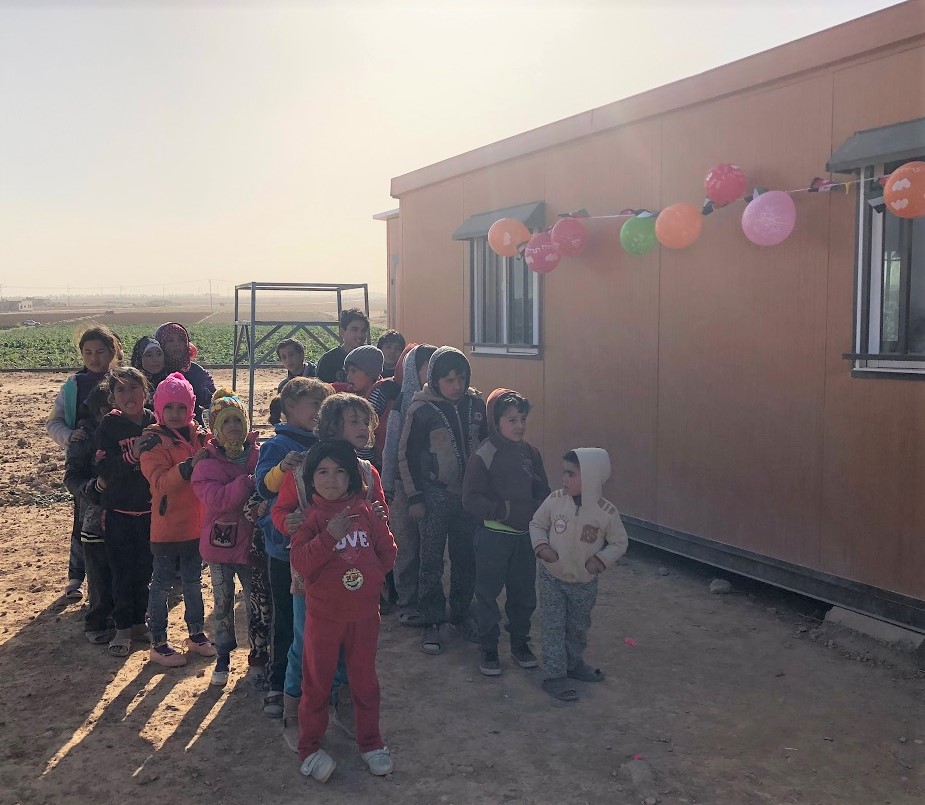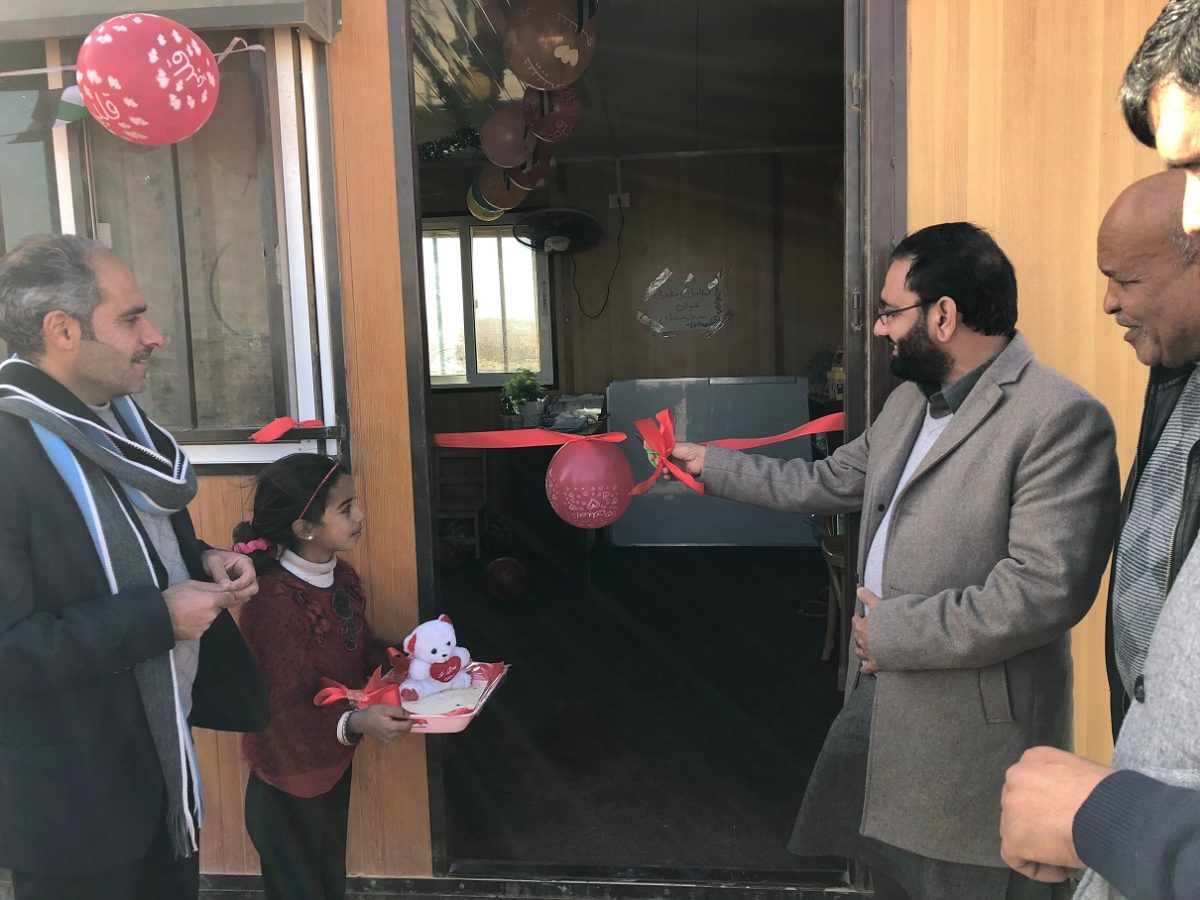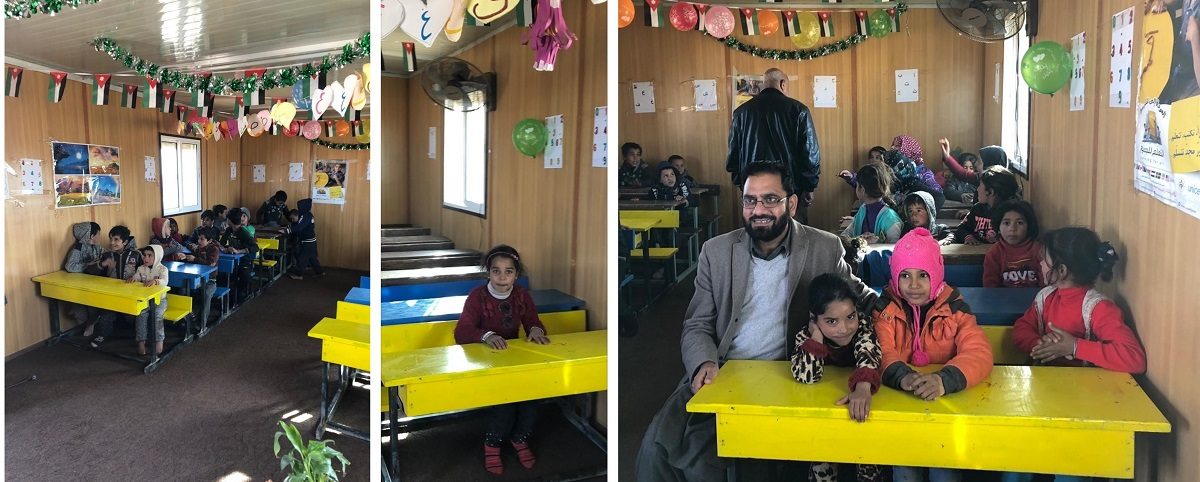Providing Education for Syrian Refugee Children
The impact of the Syrian civil war has been especially acute on children. Not only have many become refugees and been forced to leave the country of their birth but countless others have been orphaned and suffered emotional and physical trauma.
There are an estimated 1.5 million school-aged Syrian refugee children living in Turkey, Jordan, and Lebanon, but approximately half of them do not have access to formal education.

As part of our work helping Syrian refugees, Islamic Help’s Jordan team has set up a project to provide education for refugee children living in random camps in desert areas near the Syrian-Jordanian border.
For various reasons, including security and cultural tensions, their families have opted not to move into large camps but instead move from area to area, relying on seasonal agricultural work or aid agencies for their survival.
It means that in their formative years, the children miss out on education and social welfare. They suffer from nutritional deficiencies and are prone to ill health as well as being vulnerable to child labour, early marriage for under-age girls and violence.
Our education project aims to provide schooling and food for up to 600 children aged 6 to 16 years, at 10 camps in the governate of Mafraq. They will be provided with lessons in Arabic, English and life skills.
The first of the new schools was opened on 13th January 2019 at a ceremony attended by Islamic Help staff from Jordan and the UK, with the proceedings including a ribbon cutting ceremony by Islamic Help’s executive director Muhammad Shafiq.

The targeted groups are children who are missing out on education, orphans, teenagers, those with special needs and youngsters suffering stress and trauma. As well as a comprehensive educational, cultural and recreational curriculum, the children’s nutritional needs will also be met through the provision of healthy meals.
Each of the 10 locations will have a classroom made from a caravan that will feature 2 bathrooms, carpet mats, chairs and tables. Three teachers will be employed at each of the schools which will cater for 50 pupils. The children will be provided with stationery and there will also be organised visits to archaeological sites and other locations to help broaden the children’s outlook.




